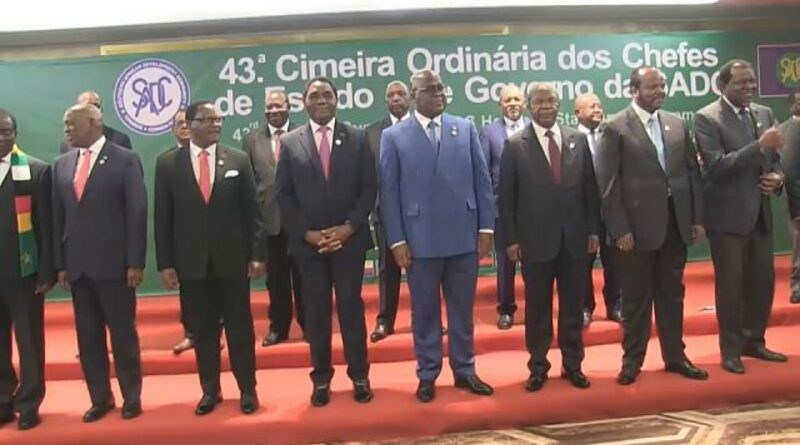Angola takes up one year rotating presidency of regional bloc SADC
Angola’s President has called on the member states of the Southern African Development Community (SADC) to speed up the ratification of the operationalisation of the Development Fund, a “key tool” for raising finance for the regional industrialisation programme.
João Lourenço said this Thursday when he accepted the one-year rotating presidency of SADC, pledged to work on diversifying the sources of funding for projects and programmes at member state and regional level, with a view to reducing “the level of dependence on the always helpful and remarkable solidarity of our international cooperation partners”.
“We will pay particular attention to the need to operationalise the Regional Development Fund and other existing investment attraction mechanisms,” said Lourenço.
The Angolan President called on member states “to speed up the approval and rectification of the agreement on the operationalisation of the SADC Regional Development Fund, a key tool for attracting essential financial resources,” in pursuit of the “regional industrialisation programme and consequently the fulfilment of the SADC regional integration agenda.”
During his term in office, João Lourenço stressed that, in addition to investing in human capital, in order for the member states and the region to industrialise, there needs to be a serious investment in electrification, a considerable increase in the production of ethanol and in the production of food.
During his mandate, João Lourenço stressed that, in addition to investing in human capital, in order to industrialise the member states and the region, there needs to be a serious commitment to electrification, a considerable increase in energy production and sharing by interconnecting their transmission network systems.
“But we also need to expand and interconnect our road and rail networks, to guarantee greater maritime and air links between our countries so that there is a greater flow of trade and movement of people and goods, so that there is real regional integration,” he stressed.
The Angolan head of state emphasised that the Portuguese-speaking country “is making a great effort to recover and build infrastructure, such as the Lobito corridor, which will facilitate the interconnection and movement of people and goods between the Atlantic and Indian Oceans,” and to place export products on international markets under more advantageous conditions.
“We are also investing seriously in increasing energy production from non-polluting sources and in transmission networks. In the field of telecommunications, Angola has invested in a fibre optic cable that already connects us to the Democratic Republic of Congo and Zambia, with the prospect of expanding to the SADC region and East African states,” he said, also highlighting investments in the construction of a satellite and oil refineries.
According to João Lourenço, during his presidency there will be “a strong focus on human capital”, with the main challenge being the training and technical-vocational qualification of young people, with a view to obtaining skills that facilitate access to employment, to ensure that they are prepared to face the challenges of the fourth industrial revolution and the digitalisation of the region’s economies.
Among the challenges, João Lourenço emphasised the issue of security in the region, such as the situation in the east of the Democratic Republic of Congo (DRCongo), where he has been “developing joint efforts between the ICGLR [International Conference on the Great Lakes Region], CEAAC [Economic Community of Central African States], SADC and the African Union to resolve the intractable conflict in this region of the brother country”.
“At SADC level, we must applaud the decision to approve the deployment of a regional force within the framework of the SADC Standby Force, as a regional response to efforts to restore peace and security in the territory of the Democratic Republic of Congo,” he emphasised.
Regarding the situation in Cabo Delgado, Mozambique, João Lourenço welcomed the progress made, despite the fact that the challenge of combating terrorism and violent extremism still prevails in that Mozambican province, and welcomed the decision to maintain the SADC mission in the Lusophone country for another 12 months.
During Angola’s mandate, the SADC region will see elections in DRCongo, the kingdom of Eswatini, Madagascar and Zimbabwe, which the regional organisation will monitor in order to guarantee “peaceful, free and fair elections, in harmony with the principles and guidelines that govern the holding of elections in the region,” noted João Lourenço.

